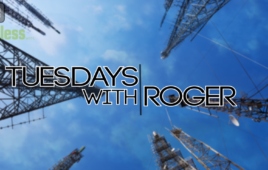The battle over the future of the CBRS band continued this week, with a fresh round of comments that pitted Google against telecom stakeholders like Verizon, AT&T, GSMA, and Nokia.
The FCC’s rules for the CBRS band as they stand today call for small area, short-term licensing (known as Priority Access Licenses) as well as band-wide opportunistic access, open to anyone (dubbed General Authorized Access).
But in the latest volley of pushback, U.S. wireless carriers AT&T and Verizon came out in support of CTIA’s recent petition to extend priority access license (PAL) terms in the 3.5 GHz band from three years to ten and modify the license areas to consist of traditional Partial Economic Areas rather than census tracts.
“The viability of the 3.5 GHz band for both PAL and General Authorized Access (GAA) users depends on licensees investing to create integrated, densely deployed, heterogeneous networks,” Verizon attorneys wrote. “The current 3.5 GHz framework provides little incentive for that degree of investment. And unless the Commission acts to adjust the rules accordingly, the level of investment will be inadequate to maximize band utility for PAL and GAA users alike.”
Similarly, telecom equipment vendor Nokia chimed in to note the changes requested by CTIA (and T-Mobile) would help “provide greater stability and investment incentives” for the CBRS band. Even the GSM Association (GSMA) stepped in to throw its weight behind the proposals, noting such changes would “make technical changes to the 3.5 GHz rules to accurately reflect likely 5G technology specifications” and “further harmonize 3.5 GHz band 5G use in the United States with much of the 3 GHz band in other countries.”
AT&T and Verizon both also backed CTIA’s request to prohibit the public disclosure of CBRS device registration information. The former in particular noted that making such information public would “potentially harm competition, consumers, national security, and cybersecurity severely.” Neither three-tiered sharing nor use of a SAS data base for deployment planning requires registration information to be made public, AT&T claimed.
But the carrier interests found themselves up against tech titan Google, which argued the changes proposed by CTIA and T-Mobile would undermine rather than promote investment in the band.
The proposed changes – including larger license areas and longer license terms – would edge out all but a few large carriers by driving up costs, Google counsel argued. The end result would be the reduced utility of the band, and weakened U.S. leadership on 5G, the company warned.
“CTIA and T-Mobile assert that adopting rules geared to maximize auction participation by large regional or national telecommunications carriers will best promote U.S. leadership in 5G technologies. But this argument presumes that 5G networks will be little more than an expansion of the traditional carrier offerings that characterize previous generations of wireless technologies. As several parties have made clear, the opposite is true,” Google counsel wrote.
Taking a different approach, NCTA – The Internet and Television Association sought middle ground. The group indicated some changes to the CBRS band rules could be helpful in pushing 5G forward, but noted extreme requests like T-Mobile’s proposal to auction the entire band would “drastically change the nature of the band and depress investment by the those planning GAA-intensive deployments.”
Reply comments to CTIA and T-Mobile’s request were due on August 8. The FCC’s next meeting is scheduled for September 28.
Filed Under: Cybersecurity, Telecommunications (spectrums)




